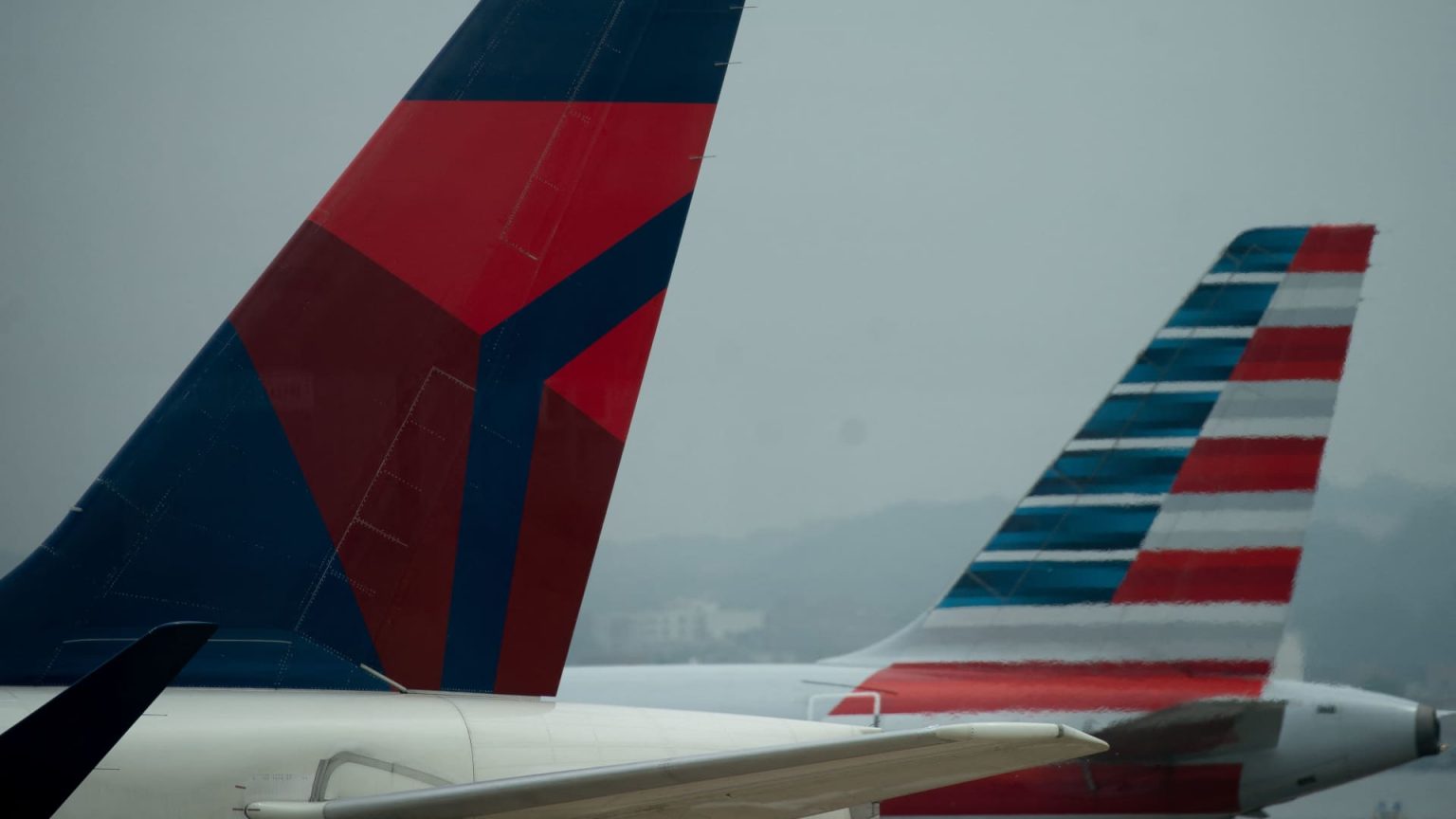In a challenging economic environment, major airlines have revised their profit and sales estimations for the upcoming first quarter. Both American Airlines and Delta Air Lines have issued warnings of broader losses amid weaker travel demand, significantly influenced by an incident involving the airline industry and general market conditions. As a result, airline shares are facing declines in premarket trading, reflecting rising concerns over consumer and corporate confidence.
| Article Subheadings |
|---|
| 1) American Airlines Revises Earnings Expectations |
| 2) Delta Air Lines Follows Suit with Warning |
| 3) Impact of Economic Factors on Travel Demand |
| 4) Market Reactions and Airline Share Performance |
| 5) Future Outlook for the Airline Industry |
American Airlines Revises Earnings Expectations
On Tuesday, American Airlines announced a significant adjustment to its first-quarter earnings projections. The airline now expects to report a loss between 60 and 80 cents per share, a notable increase from the previous forecast range of 20 to 40 cents. This forecast was disclosed in a securities filing that highlighted a pressing downturn in revenues attributed to unforeseen factors. Specifically, American Airlines cited weaknesses in its revenue environment, noting declines stemming from a tragic collision of one of its regional jets with an Army helicopter in Washington, D.C. in January, which likely impacted consumer sentiment towards flying.
Delta Air Lines Follows Suit with Warning
In a similar vein, Delta Air Lines slashed its earnings expectations shortly before American Airlines’ announcement. The airline emphasized that its revised outlook was influenced by a recent dip in both consumer and corporate confidence. In an official statement, Delta indicated that the reflexive consumer behaviors brought on by increased macroeconomic uncertainties have softened demand for domestic air travel. These downward revisions from both airlines signal a concerning trend in an industry that relies heavily on robust travel during the first quarter of the year.
Impact of Economic Factors on Travel Demand
The airline industry’s struggles can be linked to broader economic challenges that have emerged in recent months. Inflation and high living costs are dampening travel enthusiasm among consumers, impacting both leisure and business travel. Additionally, American Airlines reported an uptick in domestic leisure travel declines specifically in the month of March, exacerbating the airline’s financial strain. This has caused ripple effects across the industry, as other airlines, including Southwest Airlines, began to modify their revenue guidance in response to the deteriorating economic climate.
Market Reactions and Airline Share Performance
The reaction in the stock market was immediate following the announcements. Pre-market trading on Tuesday saw American Airlines’ stock decline nearly 4%, while Delta Air Lines shares nosedived over 8%. These reductions reflect investor concerns about the sustainability of the airlines’ business models amid declining travel demand. The issues seem to compound difficulties already felt by the airlines, as they face an uphill battle concerning profitability amid rising operating costs and diminished consumer spending.
Future Outlook for the Airline Industry
Looking ahead, analysts are cautiously assessing the impact of these announcements on the overall industry. The forecast implies a significant potential for continued weakness in travel demand, particularly within the domestic market. Observers note that the decline in government travel has also added pressure since the start of recent political shifts. Airline executives are actively strategizing on how to address these challenges, focusing on cost containment and enhancing operational efficiencies. Nevertheless, should external economic conditions improve, there could be a recovery period worth monitoring closely.
| No. | Key Points |
|---|---|
| 1 | American Airlines revises its earnings loss estimate for Q1 to between 60 and 80 cents per share. |
| 2 | Delta Air Lines also lowers its first-quarter forecasts, citing reduced consumer confidence. |
| 3 | Economic factors such as inflation are significantly impacting domestic travel demand. |
| 4 | Airline shares are experiencing declines as investors react to the financial outlook of major airlines. |
| 5 | The airline industry faces challenges but analysts remain vigilant about future recovery prospects. |
Summary
The recent announcements from American Airlines and Delta Air Lines underscore the vulnerabilities currently facing the airline industry amid a tumultuous economic period. As airlines revise their first-quarter earnings projections downward, the implications extend beyond immediate financial results, affecting investor sentiment and overall market performance. The future recovery of travel demand will likely hinge on broader economic improvements, necessitating careful analysis from industry observers.
Frequently Asked Questions
Question: What factors led to the revision of earnings expectations for American Airlines?
American Airlines revised its earnings expectations due to a weaker revenue environment influenced by declining travel demand, particularly after a tragic collision involving one of its regional jets in January.
Question: How are the stock markets reacting to these announcements from major airlines?
The stock markets have reacted negatively, with premarket trading showing significant declines in the share prices of both American Airlines and Delta Air Lines, indicating investor concerns about future profitability.
Question: What does the future outlook look like for the airline industry based on recent events?
The future outlook for the airline industry appears challenging, with analysts closely monitoring economic conditions and consumer confidence levels to gauge potential recovery in travel demand.


